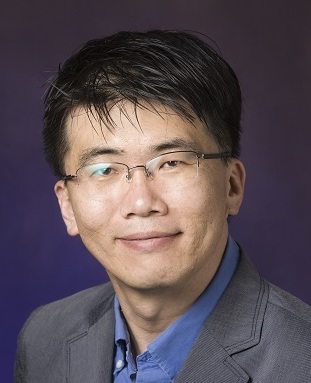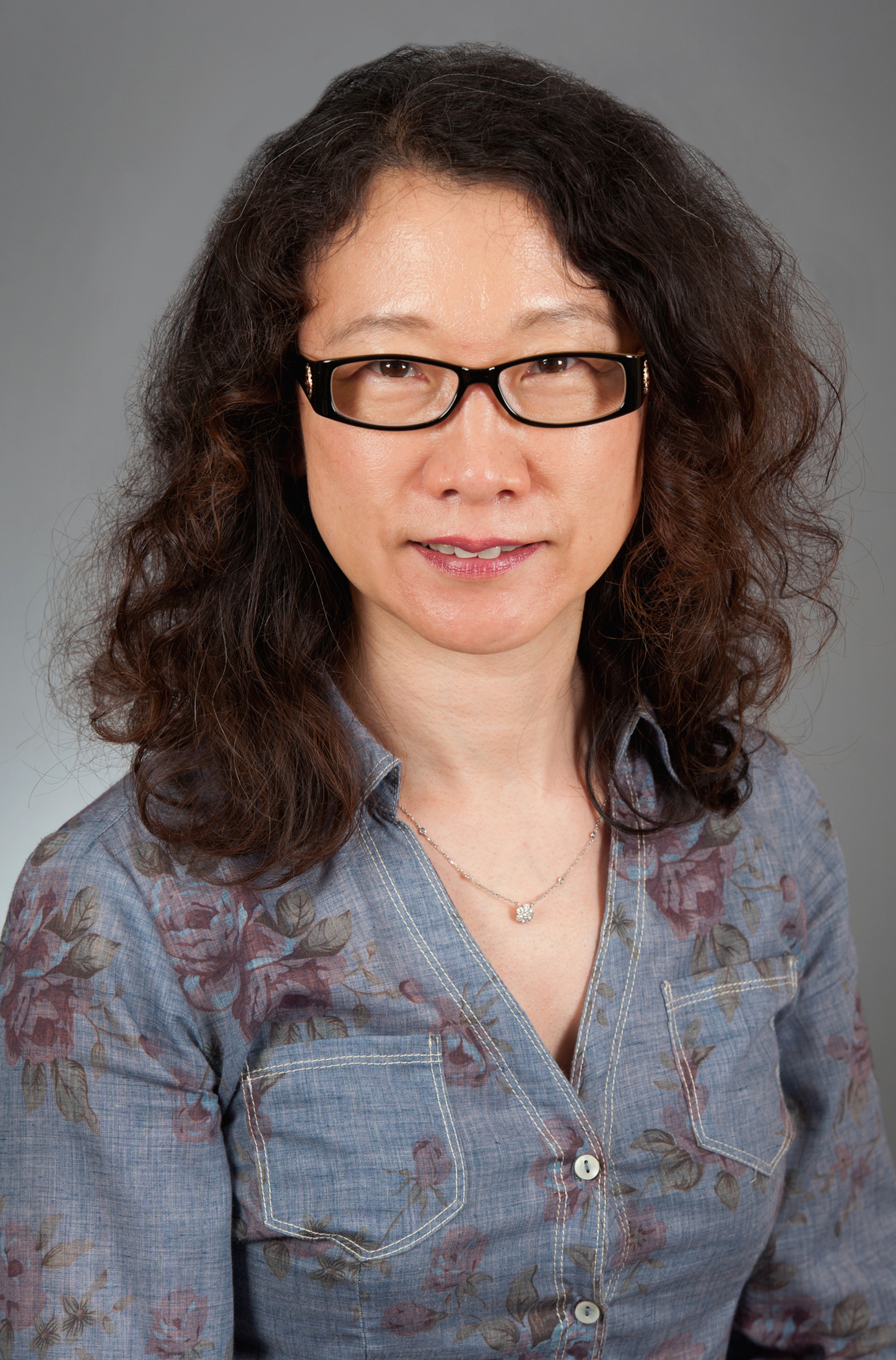About PCMM
The Program in Cellular and Molecular Medicine (PCMM), is a research program at Boston Children's Hospital (BCH) recognized worldwide for its discoveries that increase the body's ability to fight disease and to heal. The breakthroughs of PCMM scientists are greatly increasing our understanding of the influence of immune defense and inflammation on medical discovery, healthcare, and disease management. PCMM officially joined seven other interdisciplinary programs at Boston Children's Hospital in October 2012 with the goal of increasing collaborations and scientific synergies. Our investigators are academically affiliated with Harvard Medical School.
We pursue six (at least) primary areas of research:
- Adhesion molecules and inflammation
- Autoimmunity and allergy
- Genetics of immunodeficiency and cancer
- Immune defenses against infectious diseases, viruses, and tumors
- Stem Cells
- Structural Biology
Research Highlights
In or out of the loop: A tale of two immunoglobulin loci
Almost 50 years ago, it was discovered that the immune system can reshuffle gene fragments in antibodies’ variable regions, giving them the ability to recognize nearly all pathogens. Throughout his career, Frederick Alt, PhD, has revealed multiple aspects of this process, known as V(D)J recombination. The newest work from his lab, in Nature, solves a long-standing question, revealing that different mechanisms generate heavy chain versus light chain genes during V(D)J recombination.


Xiang Li
Yiwen Zhang, Xiang Li, and Hongli Hu were co-first authors of the paper and Frederick Alt and Hongli Hu were co-corresponding authors.
The Alt lab previously made transformative leaps in our mechanistic understanding of two distinct programmed rearrangement mechanisms in lymphocytes by discovering that cohesin-mediated loop extrusion plays fundamental roles in immunoglobulin heavy chain locus (Igh) V(D)J recombination and IgH class switch recombination (CSR). Thus, these very different recombination processes, which occur at different stages of B lymphocyte development, both use cohesin-mediated chromatin loop extrusion to reel long loops of chromatin past recombination centers. For each, loop extrusion juxtaposes cis-regulatory elements, substrate DNA sequences, and initiating enzymes.
The lab discovered that, during Igh variable region assembly in early B cell development, loop extrusion-mediated V(D)J recombination is regulated via down-regulation of the WAPL cohesin-complex factor, leading to substantial neutralization of chromatin impediments to loop extrusion. Impediment neutralization allows the V(D)J recombination initiating enzyme (RAG endonuclease) bound to the fixed Igh recombination center (RC) location to scan megabases (Mb) of chromatin linearly presented to it by loop extrusion. This active loop extrusion-based process, as opposed to diffusion, is the underlying mechanism by which the many diverse Igh VH gene segments are able to be located and to contribute to diverse antibody repertoires.
After solving the long-range Igh V(D)J recombination mechanism, which only joins V segments when they are directly juxtaposed and are oriented for deletional joining, the Alt lab addressed the quite different mechanism by which the Igκ light chain locus is able to employ V segments oriented for both deletional and inversional joining. The mechanism by which the Igκ locus joins V segments in both orientations was a long-standing, and much discussed, mystery for the field.
In a paper published June 6, 2024 in Nature, the Alt lab reported that, in contrast to Igh long-range V(D)J recombination that directly aligns gene segments in the RC for joining, the Igκ locus extrudes gene segments to positions within short-range diffusional distance from the RAG-bound Igκ RC, with the diffusion process allowing transient alignment for joining regardless of orientation. The lab further reported that the mechanism by which Igκ can use such a diffusion-based joining mechanism is based on the Igκ RAG endonuclease target sequences (“RSSs") being much stronger than those of the Igh locus.
Overall, the study revealed that the Igκ locus evolved remarkably strong RSSs that function robustly in the context of more transient RC interactions that occur during diffusion-mediated primary Vκ-to-Jκ joining. In contrast, the Igh locus employs relatively weak RSSs to facilitate mediation of VH utilization by WAPL down-regulated modulation of scanning impediments during long-range linear RAG scanning. Thus, rather than previously speculated differences in chromatin folding principles, the key difference between the long-range V(D)J recombination mechanisms of the Igh and Igκ loci appears to be RSS strength. Indeed, this study also showed that Igκ RSS substitutions for Igh RSSs could program the Igh locus to undergo diffusional V(D)J recombination.
The findings from this study should also have broader implications regarding how loop-extrusion-mediated V(D)J recombination could be differentially regulated in the various T Cell Receptor loci, for the evolution of the V(D)J recombination process, and for regulation of loop extrusion mediated control of functional interactions between elements located in large adjacent chromatin loop domains more generally.
Announcements
PCMM researchers win prestigious fellowships



Three PCMM researchers have recently been honored with high-profile fellowships: Pietro Fontana (Wu Lab) won a BCH Faculty Career Development Fellowship, Ibraheem Alshareedah (Ha Lab) won a Jane Coffin Childs Fellowship, and Man Wu (Wu Lab) won a CRI Irvington Postdoctoral Fellowship.
Pietro Fontana, PhD, an instructor in Hao Wu’s laboratory, was awarded a 2024 Boston Children’s Hospital OFD/BTREC/CTREC Faculty Career Development Fellowship. He will continue his research on the mechanistic study of innate immune pathways, with a particular focus on immunogenic cell death and the role of gasdermin D (GSDMD) in this process. While GSDMD has been recognized for its involvement in pyroptosis, its broader functions and potential roles in immune regulation have not been fully explored. He will use small molecule agonists to induce cancer cell death in a GSDMD-dependent manner and investigate combinatorial therapy with existing cancer therapies. Overall, the project contributes to filling gaps in knowledge about immunogenic cell death, the potential of agonizing GSDMD for anti-tumor immunity, the development of targeted immunotherapies, and mechanistic understanding of GSDMD regulation.
Ibraheem Alshareedah, PhD, a postdoctoral fellow in TJ Ha’s laboratory, has been named a Jane Coffin Childs-HHMI Fellow. In the area of DNA break repair, it is known that BRCA2 loads RAD51 onto single stranded DNA (ssDNA), yet homologous recombination still occurs in BRCA2-mutant cancers, suggesting that there is redundancy in this pathway. Hypothesizing that RAD52 nanoclusters in cells recruit RAD51 and load it onto ssDNA, even in the absence of functional BRCA2, he will examine if RAD51, ssDNA, and other DNA-break repair proteins are recruited to RAD52 nanoclusters in cells, and will then determine which RAD52 protein features are required for cluster formation. By understanding the partial redundancies in the DNA repair pathway, his research may reveal novel targets for treating BRCA2-mutant cancers.
Man Wu, PhD, a postdoctoral fellow in Hao Wu’s laboratory, has received an Irvington Postdoctoral Fellowship from the Cancer Research Institute. She will focus on the mechanism for LPS-rendered NEK7-independent NLRP3 inflammasome activation in human macrophages. NEK7 was previously found as a scaffolding protein mediating NLRP3 cage structure opening to further assemble into supracomplexes together with ASC and caspase-1, which is the hallmark of NLRP3 inflammasome activation. Using biochemical, structural, and cellular imaging approaches, she aims to interrogate whether and what condition of NLRP3 activation requires NEK7 and the mechanism of NEK7-indenpendent NLRP3 activation, which will provide a comprehensive understanding of NLRP3 activity to guide future therapeutic intervention.
Congratulations to Pietro, Ibraheem, and Man!
Sun Hur elected to American Academy of Arts and Sciences
 Sun Hur was one of 250 individuals elected in 2024 to the American Academy of Arts and Sciences. As described in the Academy’s mission statement: Founded in 1780, the American Academy of Arts and Sciences honors excellence and convenes leaders from every field of human endeavor to examine new ideas, address issues of importance to the nation and the world, and work together “to cultivate every art and science which may tend to advance the interest, honor, dignity, and happiness of a free, independent, and virtuous people.”
Sun Hur was one of 250 individuals elected in 2024 to the American Academy of Arts and Sciences. As described in the Academy’s mission statement: Founded in 1780, the American Academy of Arts and Sciences honors excellence and convenes leaders from every field of human endeavor to examine new ideas, address issues of importance to the nation and the world, and work together “to cultivate every art and science which may tend to advance the interest, honor, dignity, and happiness of a free, independent, and virtuous people.”
PCMM congratulates Sun for achieving this prestigious honor!
Hao Wu elected to American Academy of Microbiology
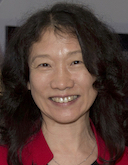 PCMM’s Hao Wu was among the newly elected members to the American Academy of Microbiology announced on February 15, 2024. Fellows of the American Academy of Microbiology, the honorific leadership group within the American Society for Microbiology, are elected annually through a highly selective, peer-review process, based on their records of scientific achievement and original contributions that have advanced microbiology.
PCMM’s Hao Wu was among the newly elected members to the American Academy of Microbiology announced on February 15, 2024. Fellows of the American Academy of Microbiology, the honorific leadership group within the American Society for Microbiology, are elected annually through a highly selective, peer-review process, based on their records of scientific achievement and original contributions that have advanced microbiology.
PCMM congratulates Hao for becoming a fellow of the Academy’s Class of 2024!
Fred Alt elected Fellow of the AACR Academy
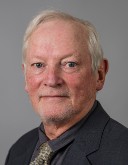 The American Association for Cancer Research has elected Fred Alt, PCMM’s Director, a Fellow of the AACR Academy Class of 2024.
The American Association for Cancer Research has elected Fred Alt, PCMM’s Director, a Fellow of the AACR Academy Class of 2024.
He was recognized “For revolutionizing the understanding of how genomic rearrangements occur, elucidating their role in cancer development and progression, and for discovering dihydrofolate reductase gene amplification in methotrexate-resistant cancer cells and MYCN amplification in neuroblastoma, as well as discovering the mechanisms regulating V(D)J recombination to form exons that encode antibody variable regions.” Margaret Foti, PhD, MD (hc), chief executive officer of the AACR, said “These scientific pioneers from around the globe have fundamentally shaped cancer research through their respective scientific accomplishments. The 2024 class of Fellows includes leaders from many scientific disciplines and areas of study who have collectively contributed to the improvement of the understanding and treatment of cancer. We are thrilled and honored to have them join our 312 existing Fellows and look forward to celebrating their enormous scientific achievements at our upcoming Annual Meeting in April.” Congratulations, Fred!
Three PCMM postdocs win Irvington Fellowships
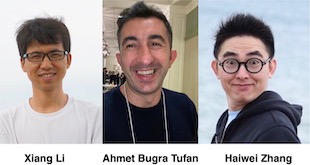 Three PCMM postdoctoral fellows were recently named winners of the Irvington Postdoctoral Fellowship from the Cancer Research Institute: Xiang Li of the Alt Lab, Ahmet Bugra Tufan of the Wu Lab, and Haiwei Zhang of the Lieberman Lab.
Three PCMM postdoctoral fellows were recently named winners of the Irvington Postdoctoral Fellowship from the Cancer Research Institute: Xiang Li of the Alt Lab, Ahmet Bugra Tufan of the Wu Lab, and Haiwei Zhang of the Lieberman Lab.
Xiang Li, Ph.D. will elucidate the molecular mechanism of long-range V(D)J recombination used by antibody heavy and light chain loci in progenitor B cells, with a special focus on recombination signal sequences (RSSs) in V(D)J regulation, which will provide new paradigms for understanding V(D)J recombination in both B cell immunoglobulin and T cell antigen receptor loci, as well as our understanding of RAG and cryptic RSSs-mediated translocations or interstitial deletions in progenitor B and T lymphocyte cancers in humans.
Ahmet Bugra Tufan, Ph.D. will focus on gasdermin-mediated release of cellular content to the extracellular space during pyroptosis and live cell unconventional protein secretion (UPS). He aims to identify the released factors that drive immune cells to fight against cancer as well as pathogenic invasions, both from live cells and pyroptotic cells but with a focus on live cell UPS. Given the potential of gasdermin activation in the tumor milieu to boost immune cell tumor-killing capacity, the goal of these studies will be novel therapeutic approaches to expand the current limits of cancer immunotherapy.
Haiwei Zhang, Ph.D. will investigate ways to inhibit mismatch repair in colorectal cancer as a strategy to activate immune responses in immunologically cold tumors. He will investigate the effect of disrupting DNA repair on anti-tumor immunity and whether this strategy can be enhanced by combining with immunotherapy. His research will lay the groundwork for investigating a novel immune therapeutic approach to refractory cancer.
Victoria Honnell wins NIH F99/K00 Award
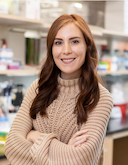 Victoria Honnell, Ph.D., a postdoctoral fellow in the laboratory of Yi Zhang, has been awarded the D-SPAN F99/K00 Individual Predoctoral to Postdoctoral Fellow Transition Award. This supports two years of graduate studies and up to four years of postdoctoral research. As a graduate student in the F99 phase of the award, she studied in the laboratory of Dr. Michael Dyer at St. Jude Children's Research Hospital. She has since transitioned to the K00 phase at BCH to study the molecular underpinnings of substance use disorders.
Victoria Honnell, Ph.D., a postdoctoral fellow in the laboratory of Yi Zhang, has been awarded the D-SPAN F99/K00 Individual Predoctoral to Postdoctoral Fellow Transition Award. This supports two years of graduate studies and up to four years of postdoctoral research. As a graduate student in the F99 phase of the award, she studied in the laboratory of Dr. Michael Dyer at St. Jude Children's Research Hospital. She has since transitioned to the K00 phase at BCH to study the molecular underpinnings of substance use disorders.
Hansol Choi wins Korean Ministerial Award
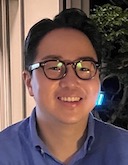 Hansol Choi, Ph.D., a postdoctoral fellow in the laboratory of Wesley Wong, has received a Korean Ministerial Award. A 2023 winner of the Human Frontier Science Program Postdoctoral Fellowship, he is conducting multidisciplinary research by combining his background in electrical engineering with the Wong group’s expertise in biophysics. He aims to develop a high-throughput protein profiling technology with single-molecule resolution that can decipher protein identity and confirmation.
Hansol Choi, Ph.D., a postdoctoral fellow in the laboratory of Wesley Wong, has received a Korean Ministerial Award. A 2023 winner of the Human Frontier Science Program Postdoctoral Fellowship, he is conducting multidisciplinary research by combining his background in electrical engineering with the Wong group’s expertise in biophysics. He aims to develop a high-throughput protein profiling technology with single-molecule resolution that can decipher protein identity and confirmation.
Fred Alt wins Brandeis Alumni Achievement Award and FPID William E. Paul Memorial Award
 Frederick Alt, Director of PCMM, has received both the Brandeis Alumni Achievement Award and the William E. Paul Memorial Award.
Frederick Alt, Director of PCMM, has received both the Brandeis Alumni Achievement Award and the William E. Paul Memorial Award.
During Brandeis University’s 75th anniversary weekend held October 13-15, Fred was presented with an Alumni Achievement Award from the Brandeis Alumni Association, that organization’s highest honor. He was an undergraduate researcher with Prof. Jerome Schiff before earning his Ph.D. in Biology at Stanford, and he was the second alumnus to receive Brandeis’ Rosenstiel Award for Distinguished Work in Biomedical Science in 2014 for pioneering research exploring the mechanisms of genomic instability and its implications for the immune system and cancer cells. He has championed undergraduate research opportunities at Brandeis, formalizing his long-standing funding of summer research programs by endowing the Dr. Frederick W. Alt ’71 Summer Biology Research Fellowship earlier this year.
Fred was also named the winner of the 2023 William E. Paul Memorial Award for Excellence in Immunology and Cell Biology by the Foundation for Primary Immunodeficiency Diseases. The award was established to honor and celebrate the contributions of Dr. William E. Paul, a pioneer in cytokine research known for his discovery of interleukin-4, who served the NIH as Chief of the Laboratory of Immunology at NIAID and Director of the Office of the AIDS Research. Fred will be honored at the 18th International Symposium on Inborn Errors of Immunity on November 16-18 in Newport Beach, California, where he will present the William E. Paul Memorial Lecture.
PCMM congratulates Fred on his two latest honors!
Tim Springer and Yi Zhang elected to National Academy of Medicine

 PCMM’s Tim Springer and Yi Zhang were among the newly elected members of the National Academy of Medicine announced on October 9, 2023.
PCMM’s Tim Springer and Yi Zhang were among the newly elected members of the National Academy of Medicine announced on October 9, 2023.
NAM President Victor J. Dzau of Duke University School of Medicine notes, “Since 1970, when the Institute of Medicine was established as part of the congressionally chartered National Academy of Sciences, our work and recommendations have shaped health research, practice, and policies that improve the lives of millions of people around the world. Now as the NAM, our capacity to influence the future of medicine and health has never been greater….we are working across disciplines and sparking innovative approaches to advance knowledge and accelerate progress in science, medicine, policy, and health equity.”
Tim and Yi join a group of exceptionally distinguished individuals who have made important contributions to health, medicine, and science. PCMM congratulates them for this prestigious honor!
2023 PCMM Retreat Poster Winners
 At the PCMM Annual Scientific Retreat, held September 25-27 at the Sea Crest Beach Hotel in North Falmouth, MA, PCMM students and postdoctoral fellows presented just over 100 posters to their colleagues and guests.
At the PCMM Annual Scientific Retreat, held September 25-27 at the Sea Crest Beach Hotel in North Falmouth, MA, PCMM students and postdoctoral fellows presented just over 100 posters to their colleagues and guests.
Following judging by the members of the PCMM Scientific Advisory Board and PCMM researchers, the 2023 poster winners, listed in rank order and representing the top 10%, were:
- Max Paget (Hur Lab)
- Ricardo Bango Da Cunha Correia (Kirchhausen Lab)
- Rui Miao (Lieberman Lab)
- Elliott Somerville (Kirchhausen Lab)
- Ari Sarfatis (Moffitt Lab)
- Aritra Bhattacherjee (Zhang Lab)
- Koji Kinoshita (Wong Lab)
- Kevin Ly (Winau Lab)
- Man Wu (Wu Lab)
- Xiyu Ma (Lieberman Lab)
Congratulations to our winners, and special thanks to all poster presenters, whose work represents the heart of PCMM research at the retreat and year-round.
Denisa Wagner receives Outstanding Investigator Award from NHLBI
 The National Heart, Lung, and Blood Institute of the NIH has bestowed upon Denisa Wagner the R35 Outstanding Investigator Award. The grant is awarded with the purpose of providing stable, long-term funding to a research program, rather than project, to provide flexibility in order to facilitate groundbreaking discoveries. The PI who receives this award must have an “outstanding record of research [which] demonstrates their ability to make major contributions to heart, lung, blood and sleep (HLBS) research.”
The National Heart, Lung, and Blood Institute of the NIH has bestowed upon Denisa Wagner the R35 Outstanding Investigator Award. The grant is awarded with the purpose of providing stable, long-term funding to a research program, rather than project, to provide flexibility in order to facilitate groundbreaking discoveries. The PI who receives this award must have an “outstanding record of research [which] demonstrates their ability to make major contributions to heart, lung, blood and sleep (HLBS) research.”
PCMM congratulates Denisa on this well-deserved honor!
Hao Wu wins Gregori Aminoff Prize
 The Royal Swedish Academy of Sciences has named Hao Wu as the 2024 laureate of the Gregori Aminoff Prize. She was cited “for her discoveries by crystallography of the assembly mechanisms of large oligomeric signaling complexes in innate immunity, a paradigm-shifting concept in signal transduction.”
The Royal Swedish Academy of Sciences has named Hao Wu as the 2024 laureate of the Gregori Aminoff Prize. She was cited “for her discoveries by crystallography of the assembly mechanisms of large oligomeric signaling complexes in innate immunity, a paradigm-shifting concept in signal transduction.”
Björn Dahlbäck, professor emeritus at Lund University and a member of the Prize Committee at the Royal Swedish Academy of Sciences, praised their newest laureate, saying, “Professor Wu is a master at identifying important biological issues and solving them using advanced structural and biochemical methods. Her discoveries may be of huge importance in understanding the causes of inflammatory diseases, their progression and treatment.”
Congratulations to Hao for this distinguished award!
Hao Wu wins Bert & Natalie Vallee Award in Biomedical Science
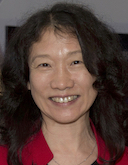 We are very happy to announce that Hao Wu, Associate Director of PCMM, is the 2024 recipient of the Bert & Natalie Vallee Award in Biomedical Science from the American Society for Biochemistry and Molecular. Awarded to an established scientist for outstanding accomplishments in basic biomedical research. Wu’s lab uses cryo-electron microscopy and other biophysical methods to understand molecular complexes involved in innate immunity, including signalosomes and pore-forming complexes like gasdermin D. Dr. Wu has been a member of the ASBMB since 2018.
We are very happy to announce that Hao Wu, Associate Director of PCMM, is the 2024 recipient of the Bert & Natalie Vallee Award in Biomedical Science from the American Society for Biochemistry and Molecular. Awarded to an established scientist for outstanding accomplishments in basic biomedical research. Wu’s lab uses cryo-electron microscopy and other biophysical methods to understand molecular complexes involved in innate immunity, including signalosomes and pore-forming complexes like gasdermin D. Dr. Wu has been a member of the ASBMB since 2018.
Congratulations Hao!
Assistant Professor – Tenure Track
Program in Cellular and Molecular Medicine (PCMM), Boston Children’s Hospital
Department of Genetics, Blavatnik Institute, Harvard Medical School
The Program in Cellular and Molecular Medicine (PCMM) at Boston Children’s Hospital in partnership with the Department of Genetics at the Blavatnik Institute of Harvard Medical School invites applications for a tenure-track faculty position at the rank of Assistant Professor. We welcome applicants with a PhD and/or MD or equivalent degree and a record of outstanding research productivity.
PCMM and the Department of Genetics offers a vibrant research community, along with many opportunities for interactions within the broader Longwood Medical Area scientific community. A successful candidate will direct an independent research program located in the PCMM in close proximity to the Department of Genetics and participate in our joint teaching missions. This appointment provides a highly competitive start-up package and access to cutting-edge facilities.
We are seeking innovative and outstanding scientists with demonstrated potential and clear vision for the future, who are working on problems relevant to any area of genetics, with expertise and interests to complement the existing broad efforts of the faculty in PCMM and the Department of Genetics. The faculty in PCMM have substantial expertise in bioengineering, advanced imagining, genomics, epigenomics, immunology, and structural biology. The faculty at the Genetics Department are working on diverse problems using a variety of approaches and model organisms, unified in their focus on the genome as an organizing principle for understanding biological phenomena.
To apply, please provide a single PDF containing a cover letter, curriculum vitae, reprints of key publications, three reference letters, and a two-page statement of research interests including previous contributions and future research plans to:
Prof. Yi Zhang, Chair, PCMM-Genetics Search Committee
PCMM-recruitment@childrens.harvard.edu
We encourage you to apply by October 15, 2023. All references also must be submitted by October 30, 2023. Applications received after this deadline may or may not be reviewed on a rolling basis. Applications may not be reviewed if incomplete.
For questions or support with submitting your application, please contact:
Dr. James Falvo
Scientific Administrative Director/Research Operations Manager
Program in Cellular and Molecular Medicine
Boston Children's Hospital
PCMM-recruitment@childrens.harvard.edu
We are an equal opportunity employer and all qualified applicants will receive consideration for employment without regard to race, color, religion, sex, national origin, disability status, protected veteran status, gender identity, sexual orientation, pregnancy and pregnancy-related conditions or any other characteristic protected by law.
Judy Lieberman elected AACR Fellow
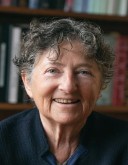 The American Association for Cancer Research has elected Judy Leiberman a Fellow of the AACR Academy Class of 2023.
The American Association for Cancer Research has elected Judy Leiberman a Fellow of the AACR Academy Class of 2023.
Judy was nominated for “fundamental research contributions to the field of cancer immunology that have contributed to understanding cytotoxic T lymphocytes, key effector cells in antitumor immunity; for the discovery of T-cell exhaustion in humans; and for innovative work describing the molecular basis of inflammatory cell death (pyroptosis) that is immunogenic and may be exploited to enhance antitumor immunity.”
“The 2023 class of Fellows includes pioneers from numerous scientific disciplines who have collectively shaped our understanding and treatment of cancer. We are deeply honored to have them join our 289 existing Fellows and look forward to celebrating their extraordinary scientific achievements at our upcoming Annual Meeting,” said Margaret Foti, PhD, MD (hc), chief executive officer of the AACR.
Congratulations to Judy for this prestigious honor!
Tim Springer wins Robert Koch Prize

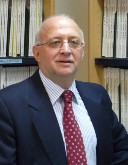 The Robert Koch Foundation announced that Tim Springer, along with Francisco Sánchez-Madrid of the Universidad Autónoma de Madrid (Autonomous University of Madrid), are the 2023 winners of the Robert Koch Prize. The duo were honored for their pioneering work in immunology, specifically for demonstrating the importance of cell adhesion molecules for immune cell function and thereby creating new therapeutic strategies for monoclonal antibody-based treatment of immune diseases. The awards ceremony will be held on November 17, 2023 in Berlin, presented by Nobel Laureate Jules Hoffmann. They will be jointly awarded 120,000 euros.
The Robert Koch Foundation announced that Tim Springer, along with Francisco Sánchez-Madrid of the Universidad Autónoma de Madrid (Autonomous University of Madrid), are the 2023 winners of the Robert Koch Prize. The duo were honored for their pioneering work in immunology, specifically for demonstrating the importance of cell adhesion molecules for immune cell function and thereby creating new therapeutic strategies for monoclonal antibody-based treatment of immune diseases. The awards ceremony will be held on November 17, 2023 in Berlin, presented by Nobel Laureate Jules Hoffmann. They will be jointly awarded 120,000 euros.
From the official press release:
"With this year's prizewinners, we are honouring two world-famous pioneers of immunology," says Prof. Dr. Wolfgang Plischke, Chairman of the Robert Koch Foundation. "In the pandemic of the last few years, autoimmune diseases have slowly moved more into the focus of public interest - yet scientists have been researching in this field for decades. With this year's Robert Koch Prize, we want to draw special attention to the out-standing work in immunology.”
“As Chairman of the Scientific Advisory Board of the Robert Koch Foundation, Prof. Dr. Andreas Radbruch adds: "Tim Springer and Francisco Sanchez-Madrid have done pioneering work in researching the proteins that immune cells use to dock with other cells. These proteins are of central importance for the function of immune cells. Only in this way can immune cells protect us during infections, for example by killing virus-infected cells. Diseases caused by misdirected immune reactions, e.g. autoimmune diseases, can be treated by blocking these adhesion molecules. Here, the prize winners have developed the first monoclonal anti-bodies, which are now used as drugs.”
Our PCMM family sends its warmest congratulations to Tim for this highly prestigious honor!
PCMM Researchers Win Fellowships
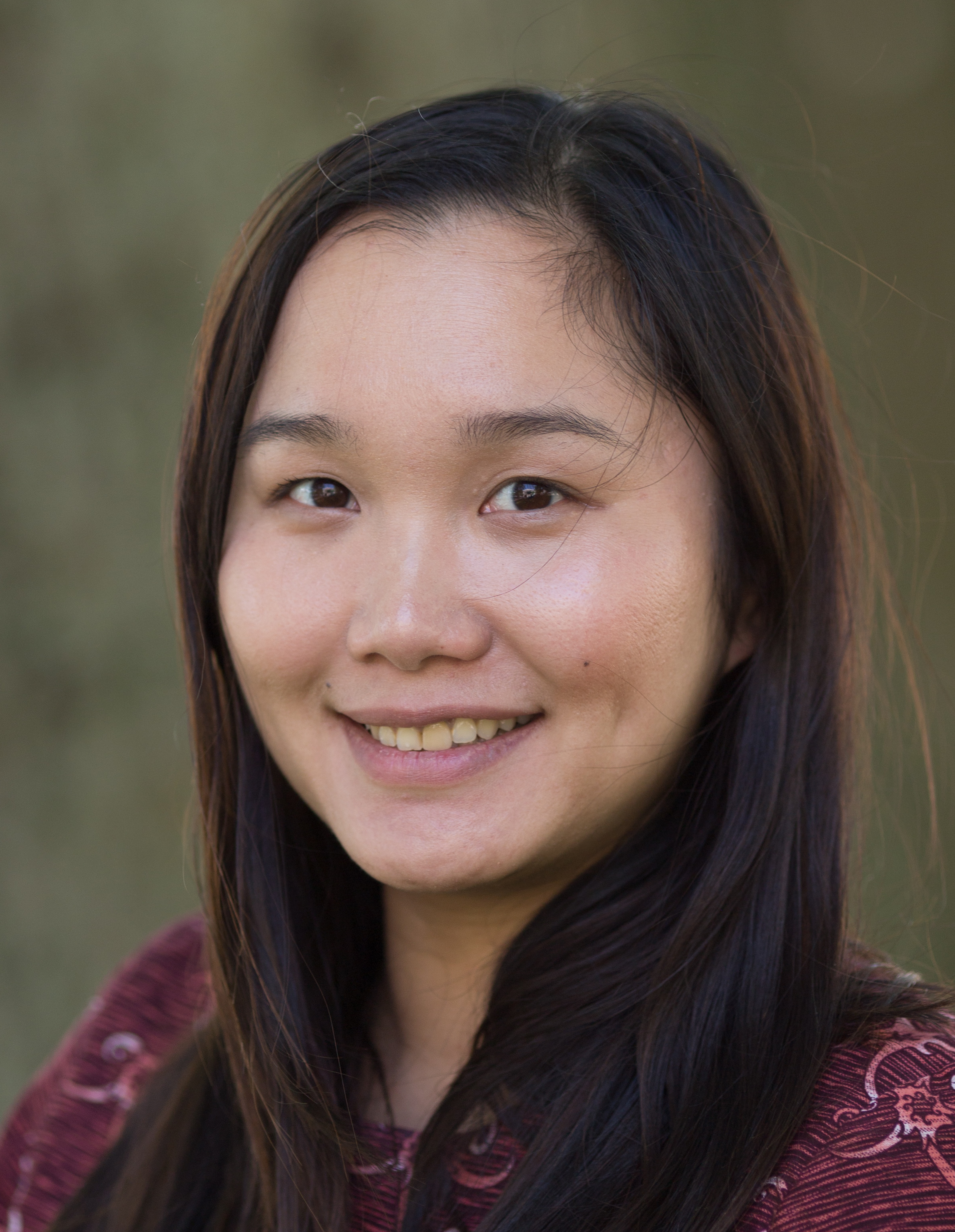
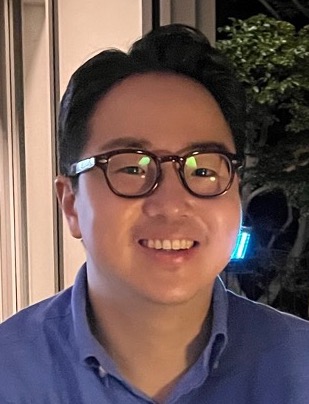 Novalia Pishesha, an instructor in the laboratory of Hidde Ploegh, received a Career Transition Fellowship from the National Multiple Sclerosis Society. She will be working on an alternative approach to tackle multiple sclerosis (MS). She aims to develop an immune engineering strategy that focuses on promoting antigen-specific tolerance, with the aim of blunting or even halting the autoimmune response that underlies this debilitating condition. She will be harnessing the alpaca-derived nanobodies, with a particular focus on a nanobody that recognizes major histocompatibility complex class II products. By engineering these nanobodies, she hopes to reprogram the immune system and help it to better distinguish between healthy and damaged tissue. She will also be developing non-invasive immune imaging methods that will allow her to monitor the effects of these interventions in real time.
Novalia Pishesha, an instructor in the laboratory of Hidde Ploegh, received a Career Transition Fellowship from the National Multiple Sclerosis Society. She will be working on an alternative approach to tackle multiple sclerosis (MS). She aims to develop an immune engineering strategy that focuses on promoting antigen-specific tolerance, with the aim of blunting or even halting the autoimmune response that underlies this debilitating condition. She will be harnessing the alpaca-derived nanobodies, with a particular focus on a nanobody that recognizes major histocompatibility complex class II products. By engineering these nanobodies, she hopes to reprogram the immune system and help it to better distinguish between healthy and damaged tissue. She will also be developing non-invasive immune imaging methods that will allow her to monitor the effects of these interventions in real time.
Hansol Choi, a research fellow in the laboratory of Wesley Wong, received a Human Frontier Science Program Postdoctoral Fellowship. The HFSP is committed to advancing the frontiers of research in the life sciences and recognizes early-stage researchers for their innovative ideas. As a HFSP cross-disciplinary fellow, he will conduct multidisciplinary research by combining his background in electrical engineering with the Wong Laboraotry’s expertise in biophysics. He aims to develop a high-throughput protein profiling technology with single-molecule resolution that can decipher protein identity and conformation.
Congratulations, Nova and Hansol!

Timothy Springer elected Distinguished Fellow of AAI
PCMM Senior Investigator Timothy Springer was elected as a member of the Class of 2023 of the Distinguished Fellows of the American Association of Immunologists! This is among the highest honors bestowed by AAI, annually recognizing long-term (25 or more years) members for distinguished careers and outstanding scientific contributions, as well as their service to AAI and the immunology community; fellows bear the designation “DFAAI.” Distinguished Fellows of the AAI have “demonstrated one or more of the following: excellence in research accomplishment in the field of immunology; exceptional leadership to the immunology community in academia, foundations, nonprofits, industry, or government at a national or international level; notable distinction as an educator.”
Please join us in congratulating Tim for this milestone accomplishment!

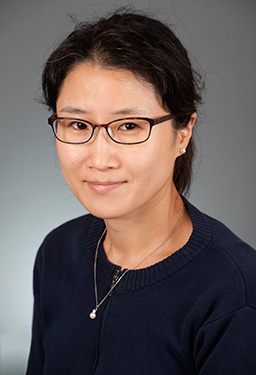
Tom Kirchhausen and Sun Hur elected to the American Academy of Microbiology
PCMM investigators Tom Kirchhausen and Sun Hur were elected to the American Academy of Microbiology. The Academy is the honorific leadership group within the American Society for Microbiology, and its official mission is “to recognize scientists for outstanding contributions to microbiology and provide microbiological expertise in the service of science and the public.”
Congratulations to Tom and Sun for becoming fellows of the Academy’s Class of 2023!
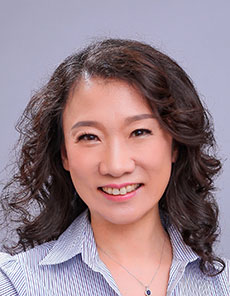
Hao Wu wins AAI-Thermo Fisher Meritorious Career Award
We are very happy to announce that Hao Wu, Associate Director of PCMM, is the 2023 recipient of the AAI-Thermo Fisher Meritorious Career Award from the American Association of Immunologists. The award, supported by Thermo Fisher Scientific, is given annually to a scientist for exceptional research contributions to the field of immunology. She was nominated specifically for her studies of key molecules and pathways of the immune system, which have revealed higher-order protein assembly as a critical mechanism of innate immune signaling and has transformed how we view signal transduction in immune cells.
Congratulations to Hao for this first award of the new year for PCMM, no doubt with many more to come!

Tim Springer wins Lasker Award
On September 28, 2022, the Lasker Foundation announced that Tim Springer, along with Richard O. Hynes of MIT and Erkki Ruoslahti of Sanford Burnham Prebys, won the 2022 Albert Lasker Basic Medical Research Award. Tim and his co-recipients were honored for discoveries concerning integrins, key mediators of cell-matrix and cell-cell adhesion in physiology and disease
Widely regarded as America’s top biomedical research prize since its creation more than 75 years ago by Mary and Albert Lasker, the Lasker Awards carry an honorarium of $250,000 for each category. Recipients of the Lasker Medical Research Awards are selected by a distinguished international jury chaired by Joseph L. Goldstein, recipient of the 1985 Lasker Award for Basic Medical Research and the Nobel Prize in Physiology or Medicine. Ninety-five Lasker Laureates have received the Nobel Prize, including seven in the last four years. The September 28 award presentation, featuring short videos on this year’s winners and their work, occurred at a celebratory online event, viewable at laskerfoundation.org, where full citations are listed for each award category.
From the Foundation’s official press release: In their respective labs, Richard O. Hynes and Erkki Ruoslahti identified a cell-surface-associated protein that helps affix cells to the surrounding material, called the extracellular matrix; later, they identified a receptor to which this protein binds. Separately, Timothy A. Springer detected transmembrane proteins that underlie the ability of immune cells to interact with their targets. These initially disparate discoveries converged and their significance mushroomed after the investigators realized that these proteins—later dubbed “integrins”—belong to the same molecular family.
The work of Springer, Ruoslahti, and Hynes launched the field of integrin research, which explores the essential roles these proteins play in physiology and health. They provided a greater understanding of the diseases that can result when integrin function is perturbed. Their discoveries laid the foundation for novel therapeutic strategies to treat a variety of autoimmune disorders, such as ulcerative colitis, Crohn’s disease, and certain clotting conditions.
The PCMM family salutes Tim on this truly outstanding honor!
Judy Lieberman and Hao Wu win the William B. Coley Award
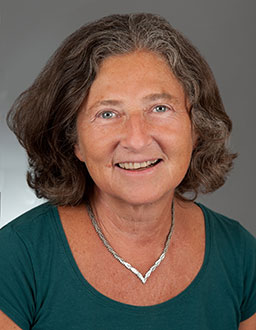
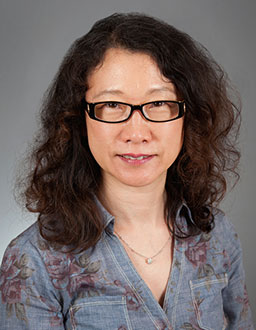 On September 27, 2022, the Cancer Research Institute presented the William B. Coley Award for Distinguished Research in Basic and Tumor Immunology to Judy Lieberman and Hao Wu at its annual awards ceremony at The University Club in New York City.
On September 27, 2022, the Cancer Research Institute presented the William B. Coley Award for Distinguished Research in Basic and Tumor Immunology to Judy Lieberman and Hao Wu at its annual awards ceremony at The University Club in New York City.
Established in 1975 in honor of Dr. William B. Coley, a pioneer of cancer immunotherapy, whose daughter, Helen Coley Nauts, founded CRI, the award is given to one or more scientists for seminal discoveries in the field of basic immunology and cancer immunology. Over the years, its distinguished recipients have deepened our knowledge of the immune response to cancer and other diseases and advanced the development of effective immunotherapies.
Judy and Hao share the 2022 William B. Coley Award with Vishva Dixit of Genentech and Feng Shao of the National Institute of Biological Sciences, Beijing, for their collective work that revealed the role of the pore-forming gasdermins in pyroptosis and promotion of antitumor immunity that set the stage for targeting gasdermins in cancer therapeutics.
In addition to the Coley Award, CRI presented the Frederick W. Alt Award for New Discoveries in Immunology, named after PCMM Director Fred Alt, which is given to a former winner of the CRI Irvington Postdoctoral Fellowship in recognition of outstanding success in academia or industry for research that has a major impact in the field of immunology. This year’s recipient is David Masopust of the University of Minnesota.
Congratulations to Judy and Hao for this prestigious honor!
Fred Alt and David Schatz win 2023 Paul Ehrlich and Ludwig Darmstaedter Prize
 PCMM’s Director Fred Alt and David Schatz of Yale’s Department of Immunobiology and Department of Molecular Biophysics and Biochemistry, have been named co-recipients of the 2023 Paul Ehrlich and Ludwig Darmstaedter Prize, which is considered to be Germany’s most prestigious award for medical research. The Scientific Council of the Paul Ehrlich Foundation awarded the prize to Alt and Schatz "for the discovery of essential molecular components and mechanisms by which somatic diversification of antigen receptors is achieved in the vertebrate adaptive immune system."
PCMM’s Director Fred Alt and David Schatz of Yale’s Department of Immunobiology and Department of Molecular Biophysics and Biochemistry, have been named co-recipients of the 2023 Paul Ehrlich and Ludwig Darmstaedter Prize, which is considered to be Germany’s most prestigious award for medical research. The Scientific Council of the Paul Ehrlich Foundation awarded the prize to Alt and Schatz "for the discovery of essential molecular components and mechanisms by which somatic diversification of antigen receptors is achieved in the vertebrate adaptive immune system."
Warmest congratulations from PCMM to Fred for this outstanding achievement!
Four Wu Lab postdocs win fellowships
Four postdoctoral researchers in Hao Wu’s laboratory at PCMM recently received prestigious fellowships.
Yumei Zheng won a fellowship from the Jane Coffin Childs Memorial Fund for Medical Research. Dr. Zheng will capitalise on the striking new mechanism identified recently to effectively activate Death Receptor 5 (DR5) on cancer cells for anticancer therapy. She will determine the molecular requirements for both the autoinhibition and activation of DR5, and to screen for agonistic anti-DR5 antibodies that specifically disrupt the autoinhibitory state of DR5 to consequently boost apoptosis in tumor cells for therapeutic potentials..
Le Xiao was named winner of the Jared J. Grantham Research Fellowship from the Ben J. Lipps Research Fellowship Program. Dr. Xiao will explore the relationship of protein folding and transport to disease, as well as on drug development. Compelling evidence strongly supports the hypothesis that accumulation of misfolded proteins leads to many human diseases including synaptic dysfunction, neuronal apoptosis, brain damage, and kidney diseases. However, the mechanism by which protein misfolding and aggregation trigger these diseases is still unclear. He will work on mucin 1 kidney disease (MKD), which is caused by defects in protein folding and trafficking, and seek to elucidate the pathogenic mechanism of MKD and contribute to the development of drugs for MKD.
Mohammad Kawsar Manik won a Cancer Research Institute Irvington Postdoctoral Fellowship. Dr. Manik will elucidate the molecular mechanism of the TIR-domain-containing adapter-inducing interferon-β (TRIF, also known as TICAM-1). TRIF is a member of TIR adaptors that engage ligand-bound TLRs at the center of MyD88-independent signaling by forming signalosomes on the endosome upon dimerization of TLR3 or TLR4, which is critical for the viral immunity. Elucidation of the molecular mechanism of the TRIF signalosome would provide better understanding about the TLR-mediated antiviral responses.
Ying Dong won a Charles A. King Trust Postdoctoral Research Fellowship. Dr. Dong will pursue the structural assembly and regulatory mechanism of B Cell antigen Receptor (BCR) complex. BCR has been known as a complex composed of transmembrane-bound immunoglobulin (mIg) for antigen recognition and Igα and Igβ heterodimer for signal transduction. Her study would reveal the how BCR fulfil its function as a signaling entity and provide a structural platform for designing rational therapies against BCR-mediated diseases.
Congratulations to all, PCMM is proud of you!
PCMM researchers win Career Development Awards
Three PCMM researchers recently received prestigious awards supporting advanced and independent career development.
Venkat Magupalli, Ph.D., Assistant Professor of Pediatrics in the laboratory of Hao Wu, received both a 2021 Office of Faculty Development (OFD) Basic/Translational Research Executive Committee (BTREC) Clinical and Translational Research Executive Committee (CTREC) fellowship and an R21 award from the National Institutes of Health. His research projects will determine the molecular mechanisms and players underlying sustained inflammatory signaling. Elucidation of these pathways would provide finer insights about inflammasome-mediated inflammatory responses.
Jing Li, Ph.D., an instructor in the laboratory of Timothy Springer, was named a winner of a 2022 OFD/BTREC/CTREC fellowship. She will study how integrins αVβ6 and αVβ8 activate latent TGF-β1, which is important in development, wound-healing, immune regulation, and tumor biology. The mechanism of activation of TGF-β1, and whether tensile force is required, has important implications in therapeutic interventions. Jing hypothesizes that the tensile force exerted by the actin cytoskeleton through integrins plays an important role in αVβ6-mediated TGF-β1 activation but possibly not in αVβ8-mediated activation. To test this, Jing is going to measure single-molecule force exertion by TGF-β1-binding integrins with tension gauge tethers. She will also measure tensile force-dependent activation of TGF-β1 by integrins.
Tiffany Hsu, M.D., Ph.D. a Brigham & Women’s Hospital Rheumatology Fellow and a postdoctoral fellow in the laboratory of Sun Hur, received a Rheumatology Research Foundation Scientist Development Award. She will investigate the regulation of MDA5 signaling, which triggers the antiviral immune response upon detection of cytoplasmic double-stranded RNAs. Aberrant activation of MDA5 in the absence of infection is associated with increased risk of systemic lupus erythematosus and drives lupus-like autoinflammatory diseases. Her studies seek to identify novel biomarkers and therapeutic targets for identifying and treating lupus patients with activated MDA5.
Congratulations and best wishes for your continued success!

Sun Hur wins Dorothy Crowfoot Hodgkin Award
We are very happy to announce that Sun Hur is the 2022 recipient of the Protein Society’s Dorothy Crowfoot Hodgkin Award. From The Protein Society’s web site: “The Dorothy Crowfoot Hodgkin Award, sponsored by Genentech, is granted in recognition of exceptional contributions in protein science which profoundly influence our understanding of biology.”
The citation states, “Professor Hur’s structural and biochemical work on a family of vertebrate innate immune receptors, RIG-I-like receptors (RLRs), led to the discovery of receptor polymerization and clustering in response to detection of foreign RNA. Her laboratory elucidated how RLR filament formation enables detection of various types of viral and host RNA signatures, such as secondary structure and modification, and integration of such disparate information for discrimination between foreign and self nucleic acids. By reconstituting the signaling complex with purified components for the first time, Hur determined long sought-after structures of an activated RLR in complex with its co-factor and signaling adaptor. These studies revealed how receptor oligomerization activates the downstream signaling pathway. Her group also showed that certain mutations in the receptor and regulators can shift the immunological “threshold” for self-tolerance, leading to constitutive activation of RLRs by self-RNAs in lupus-like inflammatory disorders. Finally, the findings by Professor Hur’s laboratory that RLRs remodel protein-RNA complexes demonstrated an unanticipated signaling-independent, effector-like function of RLRs, challenging the conventional view of immune receptors as simple signaling molecules. In summary, her investigations have provided a molecular framework for understanding the RLR pathway, which sets the paradigm for how other nucleic acid sensors play roles in innate immunity.” Congratulations to Sun for this prestigious honor!
Michael Carroll and Arlene Sharpe elected Distinguished Fellows of AAI
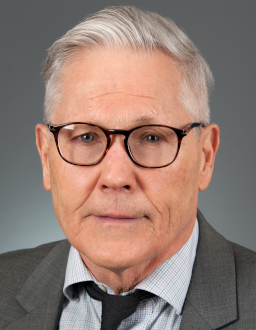
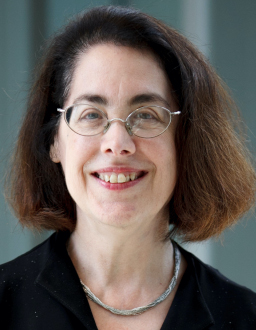 PCMM Senior Investigator Michael Carroll and PCMM Scientific Advisory Board member Arlene Sharpe were elected as members of the Class of 2022 of the Distinguished Fellows of the American Association of Immunologists!
PCMM Senior Investigator Michael Carroll and PCMM Scientific Advisory Board member Arlene Sharpe were elected as members of the Class of 2022 of the Distinguished Fellows of the American Association of Immunologists!
This is among the highest honors bestowed by AAI, annually recognizing long-term (25 or more years) members for distinguished careers and outstanding scientific contributions, as well as their service to AAI and the immunology community; fellows bear the designation “DFAAI.” Distinguished Fellows of the AAI have “demonstrated one or more of the following: excellence in research accomplishment in the field of immunology; exceptional leadership to the immunology community in academia, foundations, nonprofits, industry, or government at a national or international level; notable distinction as an educator.”
Please join us in congratulating Mike and Arlene for this milestone accomplishment!

Four PCMM researchers win Irvington Fellowships in banner year
Four PCMM postdoctoral researchers were honored in 2021 by the Cancer Research Institute. Ryan Alexander of the Ploegh Lab was an inaugural recipient of the CRI Irvington Postdoctoral Fellowship to Promote Racial Diversity, and Hongli Hu of the Alt Lab, Rui Miao of the Lieberman Lab, and Qianxia (Sherry) Zhang of the Hur Lab were winners of the CRI Irvington Postdoctoral Fellowship.
Ryan Alexander, a postdoctoral fellow in the laboratory of Hidde Ploegh, will explore a modular strategy of utilizing a combination of nanobody-based chimeric antigen receptor (nano-CAR) T cells and macrophages to target and overcome normally resistant pancreatic tumors in mice; these cells bear alpaca antibody-derived nanobodies, which are smaller and displayed more efficiently on the cell surface than antibodies and are designed to target proteins that are highly and selectively expressed by pancreatic tumors compared to healthy tissue, and are thus less likely to be recognized as “foreign” and attacked by the immune system.
Hongli Hu, an instructor in the laboratory of Fred Alt, will compare and contrast the long-range mechanisms in the context of higher-order chromatin structure used by antibody heavy and light chain loci to incorporate Vs into the V(D)J recombination reaction, which will provide major new insights into fundamental mechanisms that establish highly diverse primary antibody repertoires and how this process can go awry to generate genomic rearrangements in cancers of developing B cells, as well as inform new approaches to generate therapeutic human antibodies against cancer and other diseases.
Rui Miao, a postdoctoral fellow in the laboratory of Judy Lieberman, will investigate the role of granzyme M (GzmM), one of the most abundant and important granzymes in innate killer lymphocytes, in killer lymphocyte-driven pyroptotic killing of tumor cells and anti-tumor immunity mediated by gasdermin E (GSDME), a member of the pore-forming gasdermin protein family, aiming to uncover the molecular basis for tumor cell evasion and provide insights into how to harness the GzmM-GSDME-pyroptosis axis in the tumor microenvironment to ignite an effective immune response to immunologically cold tumors.
Sherry Zhang, a postdoctoral fellow in the laboratory of Sun Hur, will elucidate the molecular mechanism of transcription mediated by autoimmune regular (Aire), which drives autoreactive T cells to undergo clonal deletion or regulatory T cell differentiation and has been linked to impairment of antitumor immunity, mutations in which lead to multi-organ autoim;mune diseases, through functional analysis of its interactions with the co-activator CBP/P300 and genetic screen-based identification of its key downstream factors, with the aim of identifying potential therapeutic targets for manipulating self-tolerance, autoimmune syndromes, and antitumor immunity.
Congratulations to all, PCMM is proud of you!

Sun Hur wins Paul Marks Prize
We are very happy to announce that Sun Hur is a 2021 recipient of the Memorial Sloan Kettering Cancer Center’s Paul Marks Prize for Cancer Research! From MSKCC’s web site: "The prize, named in honor of MSK's past President Emeritus, the late Paul Marks, MD, recognizes a new generation of leaders in cancer research who are making significant contributions to the understanding of cancer or are improving the treatment of the disease through basic or clinical research."
The citation states, "Dr. Hur studies the innate immune system — in particular, how host cells distinguish between self and non-self nucleic acids. She has used her expertise in chemistry and structural biology to address vital questions in this field. Her research has led to the discovery of mechanisms for key signaling pathways that play a role in both the immune response and pathogenesis of a wide range of immune disorders. It also can be applied to the development of new kinds of cancer immunotherapy." Congratulations to Sun!
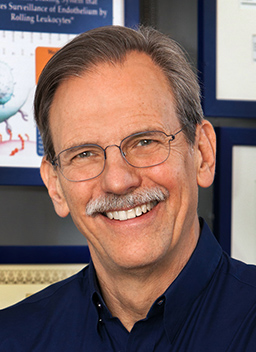
Tim Springer wins the Biophysical Society’s Founders Award
We are very pleased to announce that Tim Springer has been named the 2022 winner of the Founders Award by the Biophysical Society! The Founders Award is given annually for outstanding achievement in any area of biophysics.
To quote his award citation, Tim was lauded “for pioneering contributions to biophysical studies of immune cell rolling, activation, and adhesion and for revealing the force-based activation of integrins through an innovative combination of structural biology, single-molecule mechanical measurements, and thermodynamic analysis.” He will be honored at the 66th Biophysical Society Annual Meeting in San Francisco this coming February. The PCMM community offers its warmest congratulations to Tim!

Sun Hur named 2021 HHMI Investigator
We are delighted to announce that Sun Hur has been named a Howard Hughes Medical Institute Investigator!
To quote her HHMI citation, her focus is “solving the immune system’s most perplexing mysteries.” Her work has contributed fundamental new insights into the mechanisms by which the immune system responds to viral versus host RNA, in turn providing major implications for therapy of viral infections, inflammatory diseases, and cancers. Sun’s accomplishment not only highlights her own outstanding research achievements, but also elevates the profile of our program as a whole. The PCMM community sends her its warmest congratulations!
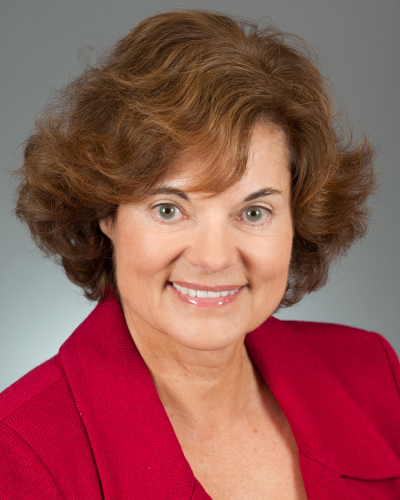
Denisa Wagner wins the American Society of Hematology’s Henry M. Stratton Medal
It with great pleasure that we announce that Denisa Wagner has been awarded the American Society of Hematology’s Henry M. Stratton Medal!
As described by ASH: “The Henry M. Stratton Medal is named after the late Henry Maurice Stratton, co-founder of Grune and Stratton, the medical publishing house that first published ASH’s journal Blood. The prize honors two senior investigators whose contributions to hematology both basic and clinical/translational research are well recognized and have taken place over a period of several years.”
As the 2021 basic science awardee of the Henry M. Stratton Medal, Denisa was cited “for her contributions to the fields of vascular biology, inflammation, and thrombosis. Her discovery that von Willebrand factor (VWF) is contained in a reservoir within endothelial cells ready to coat the inside of blood vessels to aid platelet and leukocyte recruitment, was important to the understanding of vascular response to injury. The regulated release of VWF guided subsequent studies on the molecular basis of von Willebrand disease. Her recent study of neutrophil extracellular traps (NETs), chromatin actively ejected from neutrophils, has led to the discovery of a link between neutrophil activation and thrombosis. This link revealed a significant pathological contribution of ‘immuno-thrombosis’ to ischemic organ injury and cancer.”
Congratulations to Denisa for this well-deserved honor!
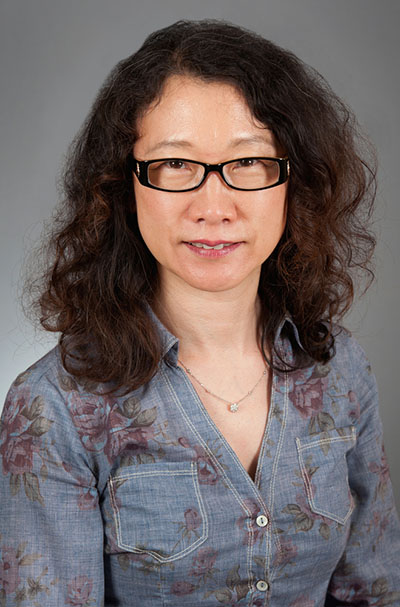

Hao Wu and Akiko Iwasaki elected to American Academy of Arts and Sciences
We are delighted to announce that Hao Wu, Associate Director of PCMM, and Akiko Iwasaki of the Yale School of Medicine, PCMM Scientific Advisory Board member, have been elected to the American Academy of Arts & Sciences!
Here at PCMM, Hao has done outstanding work in structural biology and mechanistic immunology that has fundamentally revised our understanding of the molecular mechanisms of innate immune signaling.
David Oxtoby, President of the American Academy of Arts and Sciences, noted of the 2021 class of newly elected members, “The past year has been replete with evidence of how things can get worse; this is an opportunity to illuminate the importance of art, ideas, knowledge, and leadership that can make a better world.”
Congratulations to Hao and Akiko for this wonderful achievement!
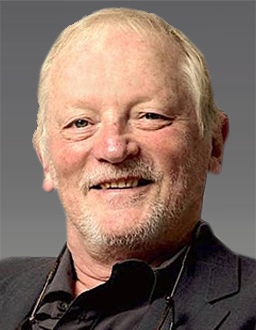
PCMM Director Fred Alt receives 2021 AACR Award for Lifetime Achievement in Cancer Research
The American Association for Cancer Research (AACR) has honored Fred Alt, Director of PCMM, with the 18th AACR Award for Lifetime Achievement in Cancer Research. The award, established in 2004, is presented to individuals who have made fundamental contributions to cancer research through a single discovery or a body of work.
He was cited “for the discovery of gene amplification in mammalian cancer cells, discoveries that contributed to establishing oncogene amplification as a tumor progression mechanism, elucidating non-homologous end-joining, and revolutionizing the understanding of how genomic rearrangements form and how they contribute to cancer.” The chief executive officer of the AACR, Margaret Foti, PhD, MD (hc), added, “Dr. Alt is a pioneer in the fields of genetics and immunology whose landmark discoveries have had a defining impact on the study of cancer biology. We thank him for his immeasurable contributions to cancer research and are proud to honor his ongoing dedication to progress against cancer with this award.”
In addition to his groundbreaking work on cancer, recognized with this award, his pioneering research in immunology helped define the processes that generate the immense diversity of antibodies that can be produced to ward off infection.
The PCMM community extends its warmest congratulations to Fred for this well-deserved honor!
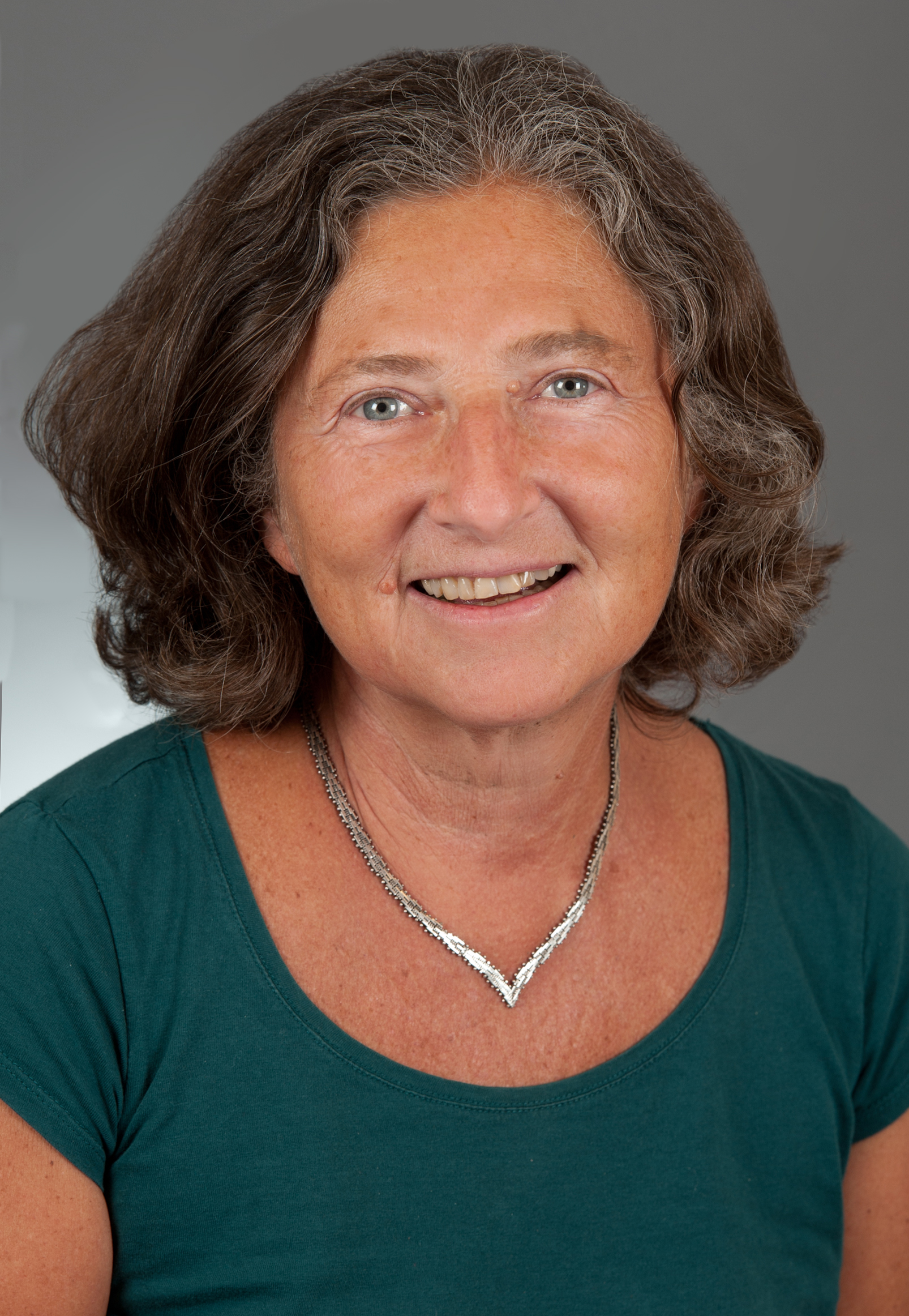
Judy Lieberman elected to National Academy of Medicine
We are delighted to announce that Judy Liberman has been elected as a member of the National Academy of Medicine!
This honor follows her election to the National Academy of Sciences in April, so this has been an exceptional year indeed for Judy. It is a fitting tribute to how her life's work of outstanding discoveries in immunology and inflammation have influenced the fields of health and medicine. Judy's achievements bolster the entire PCMM community, and we look forward to her many more successes and contributions to come.
Please join us in extending our heartfelt congratulations to Judy!
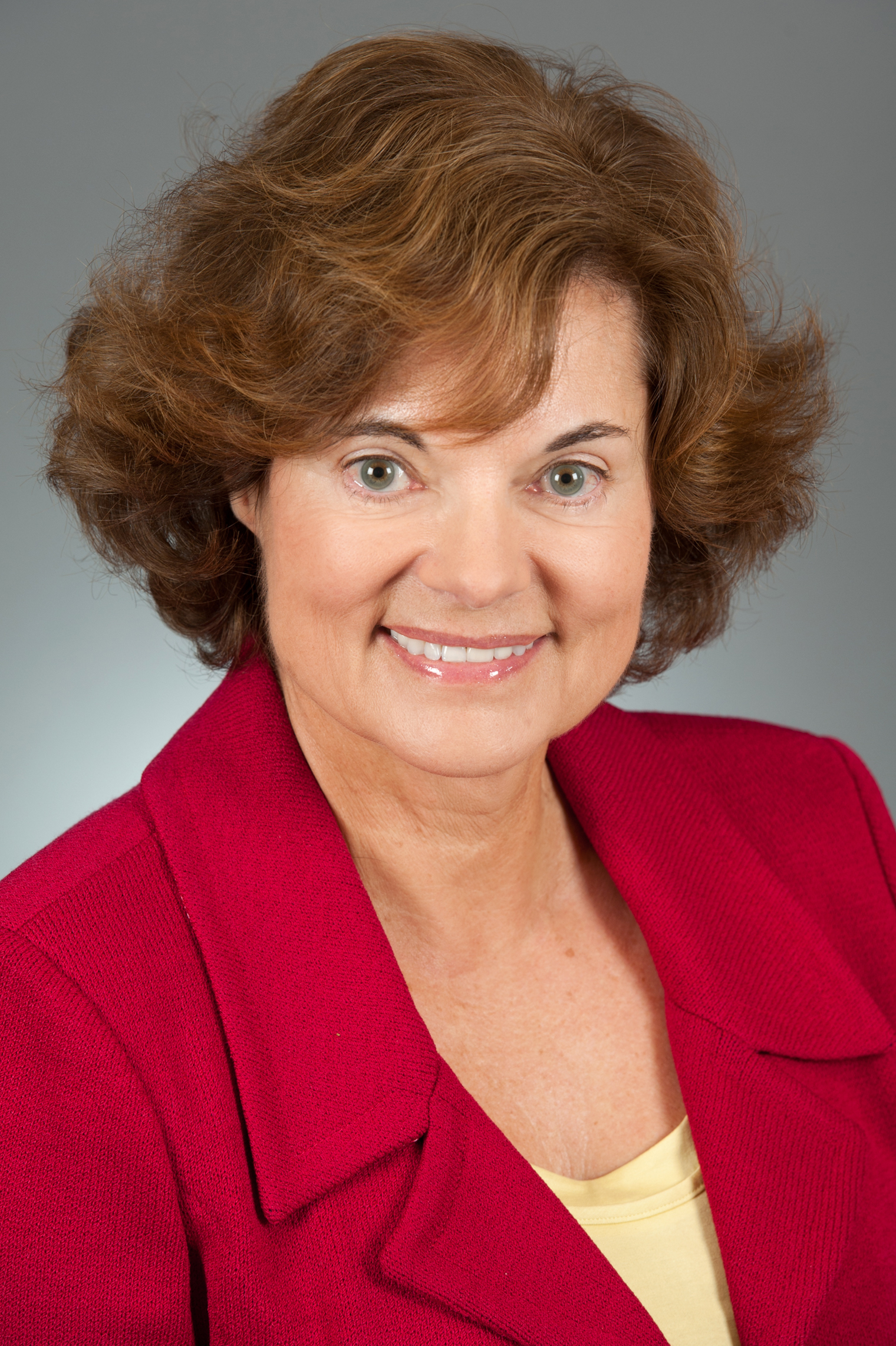
Randomized study for treatment of COVID pneumonia in children and adults uses cystic fibrosis drug, dornase alfa (Pulmozyme)
Drug may break up 'neutrophil extracellular traps' or NETS, which contribute to lung inflammation and thicken mucus.
BOSTON — Researchers at Boston Children's Hospital and Brigham and Women's Hospital have launched a randomized, placebo-controlled clinical trial of dornase alfa (Pulmozyme) in patients with severe COVID-19 pneumonia and respiratory failure requiring mechanical ventilation. The study aims to enroll 60 adults and children (over age 3) admitted to intensive care units.
Dornase alfa, also called DNase 1, is FDA-approved for patients with cystic fibrosis, to break up thick mucus secretions and prevent lung infections. The trial is supported by the Massachusetts Consortium on Pathogen Readiness, and the drug is being provided by Genentech, a member of the Roche Group, which is also providing supplementary financial support.
“We hope this drug, which is known to be safe, will help reduce the inflammation that contributes to worsening respiratory distress in COVID-19,” says Benjamin Raby, MD, MPH, chief of the Division of Pulmonary Medicine at Boston Children’s Hospital and principal investigator on the study.
The 18-month study will randomize patients to twice-daily nebulized dornase alfa or placebo (a saline solution) within 48 hours after intubation and placement on a ventilator. Treatments will be given via the ventilator tubing, twice a day for up to 28 days. Researchers will then monitor both groups for up to 28 days, or until patients are no longer receiving mechanical ventilation, whichever is sooner. Neither the researchers nor the patients (and families) will know which treatment is being given.
The main outcome of interest is the number of patients in each group who are alive and ventilator-free 28 days after treatment. Other measures will include airway resistance to breathing, lung compliance (the lungs’ ability to stretch and expand), blood oxygenation, and length of stay in the ICU and hospital.
Why dornase alfa for COVID-19 pneumonia?
Some patients with COVID-19 pneumonia produce large amounts of thick mucus that can make effective delivery of oxygen by mechanical ventilation more challenging. Dornase alfa is an effective mucolytic — able to soften mucus and promote its clearance from the airways. In addition, dornase alfa may be able to reduce lung inflammation promoted by neutrophil extracellular traps, or NETs. NETs are webs of DNA and toxic protein released by neutrophils, first responders in the immune system, in an excessive effort to entrap invading microbes. NETs are also known to produce dangerous blood clots such as those that form in COVID-19 patients, and are known, in general, to contribute to blood clots in the lung capillaries, inflammation, and lung injury.
Denisa Wagner, PhD, of the Program in Cellular and Molecular Medicine at Boston Children’s Hospital, who helped to initiate the new trial, has been studying NETs and their role in unwanted clot formation and fibrosis (thickening and scarring of tissue) for more than a decade.
“Preclinical studies by several groups, including ours at Boston Children’s Hospital, have found that DNase 1 improved outcome in lung injury models and thrombotic models mimicking events that occur frequently in COVID-19, such as deep vein thrombosis, stroke and microvascular thrombosis,” Wagner says. “This suggests to us that treatment with DNase could be beneficial in severe lung injury observed in COVID-19.”
Although this study is limited to the lung, it’s hypothesized that NETs contribute to coagulopathies seen with COVID-19 elsewhere in the body.
Other study principals include Rebecca Baron, MD, and Laura Fredenburgh, MD, of Brigham and Women’s Hospital and Meera Subramaniam, MD, and Gregory Sawicki, MD, of Boston Children’s Hospital.
Boston Children’s Hospital is ranked the #1 children’s hospital in the nation by U.S. News & World Report and is the primary pediatric teaching affiliate of Harvard Medical School. Home to the world’s largest research enterprise based at a pediatric medical center, its discoveries have benefited both children and adults since 1869. Today, 3,000 researchers and scientific staff, including 9 members of the National Academy of Sciences, 21 members of the National Academy of Medicine and 12 Howard Hughes Medical Investigators comprise Boston Children’s research community. Founded as a 20-bed hospital for children, Boston Children’s is now a 415-bed comprehensive center for pediatric and adolescent health care. For more, visit our Answers blog and follow us on social media @BostonChildrens, @BCH_Innovation, Facebook and YouTube.

Judy Lieberman elected to National Academy of Sciences
It is our great pleasure to announce that PCMM's Judy Lieberman has been elected as a member of the U.S. National Academy of Sciences!
NAS membership is one of the highest honors that a scientist can receive, recognizing distinguished and continuing achievements in original research across all disciplines, from mathematics to biomedical sciences to social sciences.
This distinguished honor is a tribute to Judy's lifetime of truly outstanding work in immunology and inflammation. Her ongoing science and her broad contributions continue to be amazing. Please join us in extending our heartfelt congratulations to Judy!
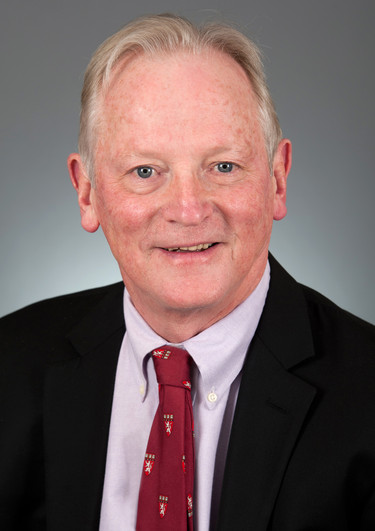

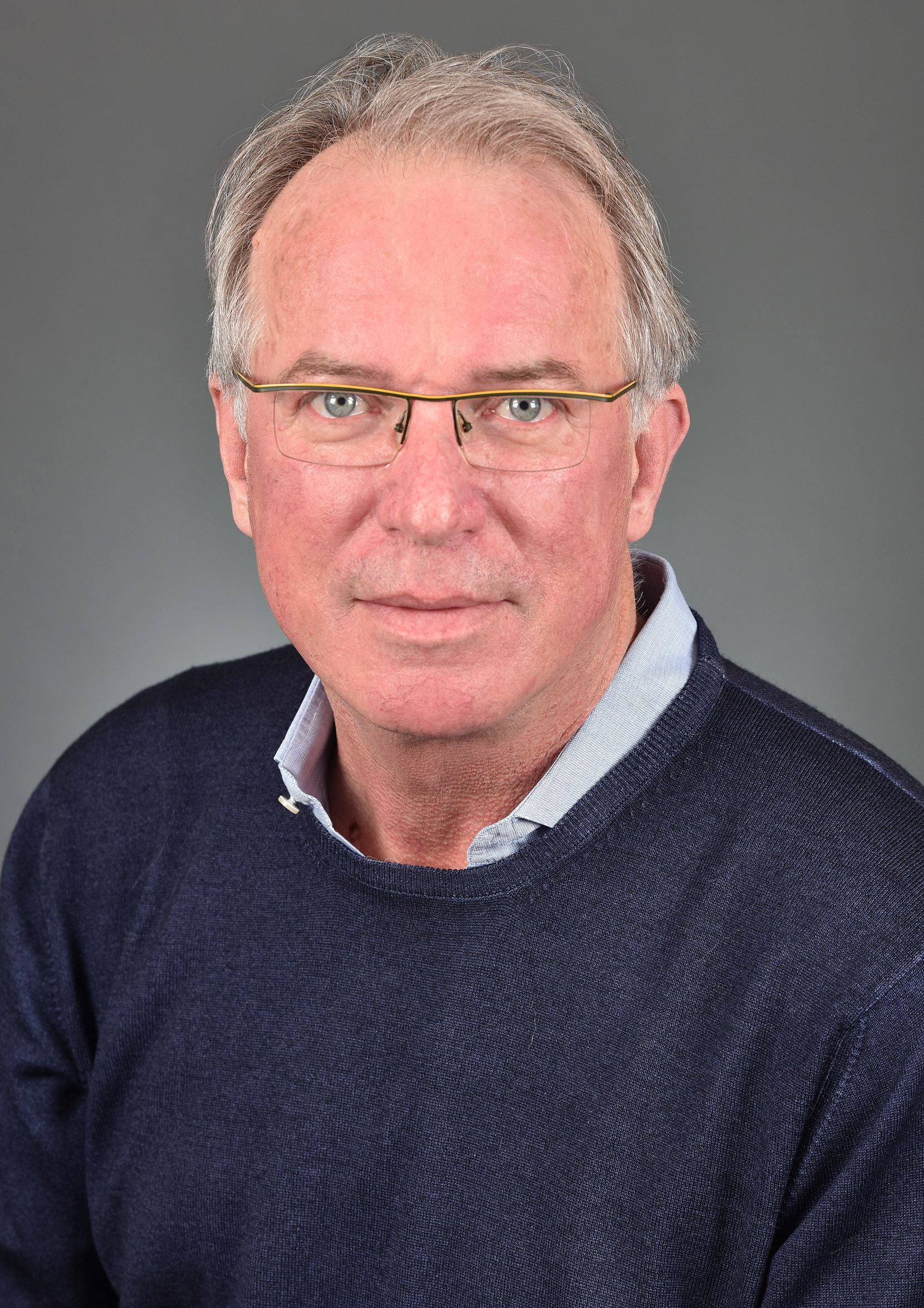
Fred Alt, Hidde Ploegh, and Richard Flavell named Distinguished Fellows of the American Association of Immunologists
The American Association of Immunologists has named PCMM Director and Senior Investigator Fred Alt, Charles A. Janeway Professor of Pediatrics and Professor of Genetics at Harvard Medical School and Howard Hughes Medical Institute Investigator at BCH, and PCMM Senior Investigator Hidde Ploegh as members of the Distinguished Fellows of American Association of Immunologists, Class of 2020. Also among the latest class of AAI Distinguished Fellows is PCMM Scientific Advisory Board member Richard Flavell, Sterling Professor of Immunobiology at Yale School of Medicine and Investigator of the Howard Hughes Medical Institute.
Selection as a Distinguished Fellow is one of the highest honors bestowed by AAI, presented to members who have been active 25 or more years and have made outstanding contributions to science, demonstrating such qualities as “excellence in research accomplishment in the field of immunology; exceptional leadership to the immunology community in academia, foundations, nonprofits, industry, or government at a national or international level; notable distinction as an educator.”
PCMM congratulates Fred, Hidde, and Richard on this achievement!
Hao Wu and TJ Ha honored as 2020 Biophysical Society Fellows
The Biophysical Society has named Hao Wu, PCMM Senior Investigator and Asa and Patricia Springer Professor Biological Chemistry and Molecular Pharmacology and Professor of Pediatrics at Harvard Medical School, and Taekjip (TJ) Ha, the newest member of the PCMM Scientific Advisory Board and Bloomberg Distinguished Professor, Professor of Biophysics and Biophysical Chemistry, Professor of Biomedical Engineering, and Howard Hughes Medical Institute Investigator at Johns Hopkins School of Medicine, as 2020 Society Fellows.
The award honors members who have supported the society, demonstrated scientific excellence, and expanded the field of biophysics. Hao was honored “for fundamentally revising how we view intracellular signaling and cellular organization, through discovering supramolecular ‘signalosomes’ formed by innate immune signaling proteins, mechanisms that govern cooperative assembly, and proximity-driven enzyme activation.” TJ was honored “for his contributions to single molecule biophysics approaches which have furthered our understanding of complex interacting biological systems.” All six newly elected Society Fellows were honored at Biophysical Society’s 64th Annual Meeting on February 17 at the San Diego Convention Center in California.
PCMM congratulates Hao and TJ for achieving this honor!
Sun Hur promoted to Professor
The PCMM is most pleased to congratulate PCMM Investigator Dr. Sun Hur on her promotion to Professor of Biological Chemistry and Molecular Pharmacology at Harvard Medical School. She is also being proposed for an appointment as Professor of Pediatrics. Sun came to PCMM as a theoretical chemist and X-ray crystallographer, and here focused her lab upon a key question in immunology and biology more generally: how self vs. non-self nucleic acids are distinguished in the host cell to lead to appropriate innate immune responses.
Her work has revealed the importance of filament formation of nucleic acid sensors in self vs. non-self discrimination and transmission of innate immune signaling, as well as the molecular mechanisms of RNA-receptor interactions. A picture has emerged from this work in which each receptor multimerization step in the RNA sensing signaling pathway provides a specificity checkpoint that insures correct initiation of the antiviral response, and the efficiency of RNA-receptor interactions fine tunes the balance between immunity and tolerance.
Sun was named a Massachusetts Life Sciences Center New Investigator in 2009 and a Pew Biomedical Scholar in 2010. In 2015, she received the prestigious Vilcek Prize for Creative Promise in Biomedical Science and was named a Burroughs Wellcome Investigator in the Pathogenesis of Infectious Disease. Earlier this year, she received an NIH Director’s Pioneer Award. Sun will be nominated to become the first incumbent of the endowed Oscar M. Schloss MD Professorship at Harvard Medical School, based in PCMM and the BCH Department of Pediatrics. There will be more news in the near future.
We are thrilled to have Sun Hur as a PCMM colleague!
Chromatin loops unlock antibody class switching
|
Researchers in the laboratory of Frederick Alt of the Howard Hughes Medical Institute and Program in Cellular and Molecular Medicine (PCMM) at Children's Hospital Boston continue their groundbreaking work at the nexus of genetics and immunology, specifically the response of antigen-activated B cells to the enormous variety of possible threats, including bacteria, viruses, and parasites. Two reports from the Alt Lab in Nature (the first in September 2019 and a second online on October 30, 2019, with a Nature “News and Views” covering both) present major advances in chromatin regulation, showing that two distinct types of antibody gene recombination, occurring at different developmental stages, both depend upon reeling long loops of chromatin past recombination centers to align substrate gene segments in the processes known as V(D)J recombination and class switch recombination (CSR). |

Fred Alt Received AAI-BioLegend Herzenberg Award
Congratulations to Dr. Frederick W. Alt for receiving the BioLegend Herzenberg Award from the American Association for Immunologists (AAI). Established to honor the memory of AAI member Leonard A. Herzenberg Ph.D., this award recognizes investigator who has made outstanding for outstanding contributions to the field of Immunology in the area of B cell biology. This award is generously supported by BioLegend
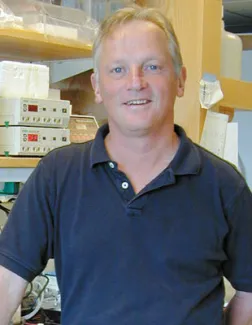
During Brandeis University’s 75th anniversary weekend held October 13-15, Fred was presented with an Alumni Achievement Award from the Brandeis Alumni Association, that organization’s highest honor. He was an undergraduate researcher with Prof. Jerome Schiff before earning his Ph.D. in Biology at Stanford, and he was the second alumnus to receive Brandeis’ Rosenstiel Award for Distinguished Work in Biomedical Science in 2014 for pioneering research exploring the mechanisms of genomic instability and its implications for the immune system and cancer cells. He has championed undergraduate research opportunities at Brandeis, formalizing his long-standing funding of summer research programs by endowing the Dr. Frederick W. Alt ’71 Summer Biology Research Fellowship earlier this year. Fred was also named the winner of the 2023 William E. Paul Memorial Award for Excellence in Immunology and Cell Biology by the Foundation for Primary Immunodeficiency Diseases. The award was established to honor and celebrate the contributions of Dr. William E. Paul, a pioneer in cytokine research known for his discovery of interleukin-4, who served the NIH as Chief of the Laboratory of Immunology at NIAID and Director of the Office of the AIDS Research. Fred will be honored at the 18th International Symposium on Inborn Errors of Immunity on November 16-18 in Newport Beach, California, where he will present the William E. Paul Memorial Lecture. PCMM congratulates Fred on his two latest honors!

